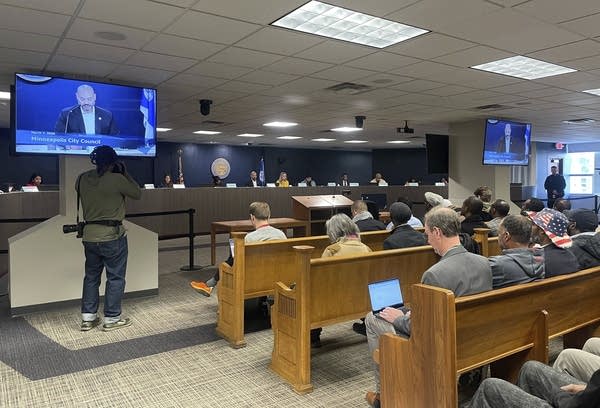
Small businesses that rely on Minnesota winters could be eligible for federal disaster assistance due to lack of snow
March 8, 2024
Health industry struggles to recover from cyberattack on a unit of UnitedHealth
March 9, 2024The average net hourly wage for drivers working for transportation network companies like Uber and Lyft falls below the minimum wage rates in both Minneapolis and St. Paul. That’s according to data released Friday by the state Department of Labor and Industry. The report comes the day after the city of Minneapolis passed an ordinance designed to boost the minimum wage for drivers to $15.57 — the current rate in the city.
However, the report does not specifically break down how much drivers operating in Minneapolis earn.
Mayor Jacob Frey issued a veto notice Friday. And while Frey says he supports higher wages for drivers, he said the council should have waited to see the results of the report before passing the ordinance.
“The council’s policy is not based in reality,” Frey told reporters at a press conference.
Frey said he will call for a special session next week during which the council can try to override his veto. The ordinance passed Thursday by 9-4, which — if it holds — would be enough to push the legislation through.
Lyft is skeptical of the data.
“The only part of this report that is grounded in reasonable data is its conclusion that Minnesota rideshare drivers earn more than $52 per hour of giving rides,” reads a statement from a company spokesperson. “The rest is nonsensical.”
The spokesperson goes on to say study authors significantly overstate the amount of drivers expenses.
Both Uber and Lyft say they will stop service in Minnesota if the ordinance survives Frey’s veto.
The report, compiled by James Parrott of The New School and Michael Reich from the University of California, Berkeley, compares the pay rates of drivers who work primarily in the metro area and those who drive in Greater Minnesota. According to the study, which is based on 18 million rides in 2022, metro drivers earned an average of $5 – $9 more per hour than non-metro drivers.
More than 1,800 network company drivers were surveyed for the report. The majority of drivers are male immigrants and predominantly Black or African American. Many drivers live below the poverty line and are disproportionately reliant on public assistance.

This is a developing story. Check back for further updates.





